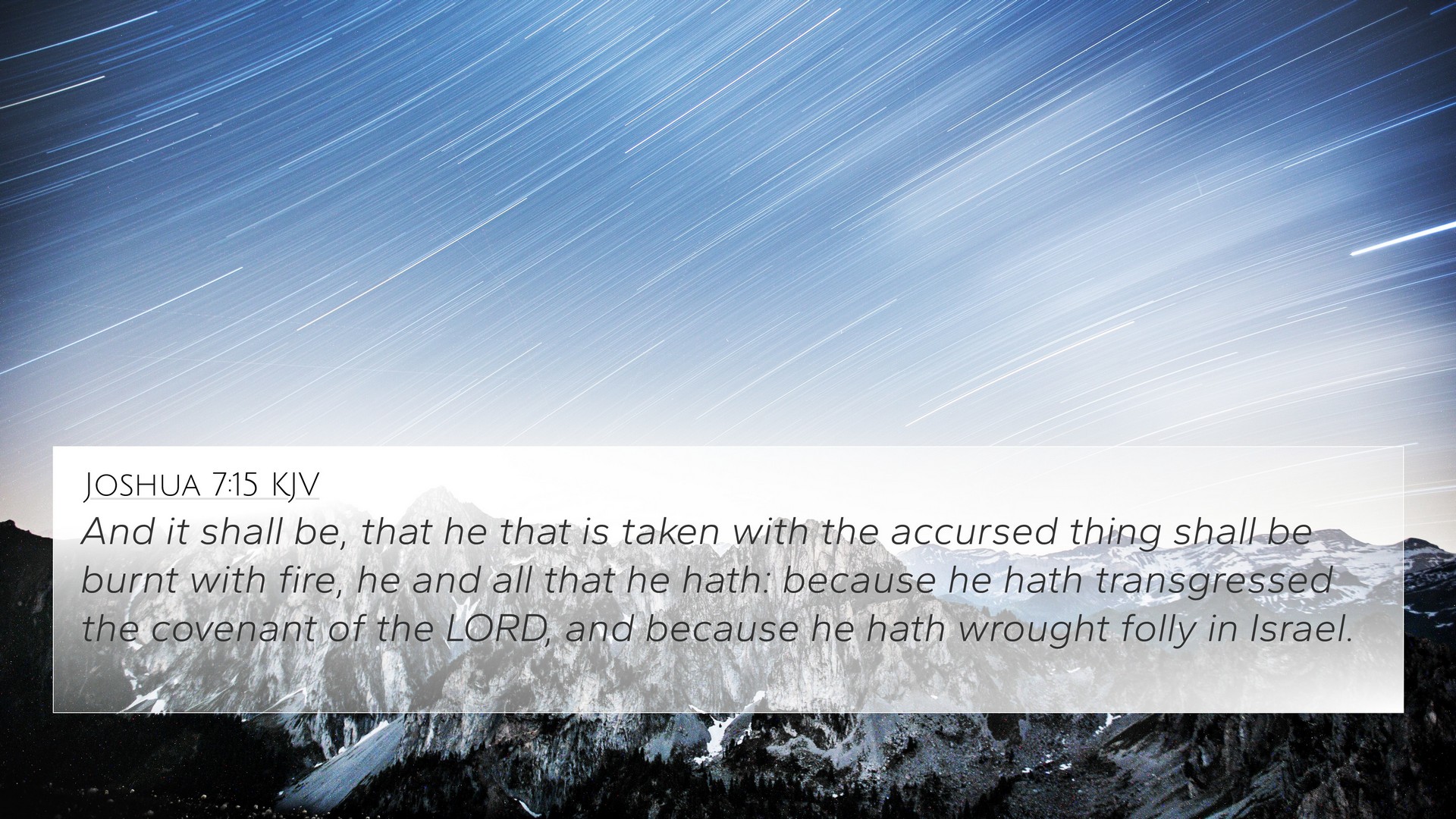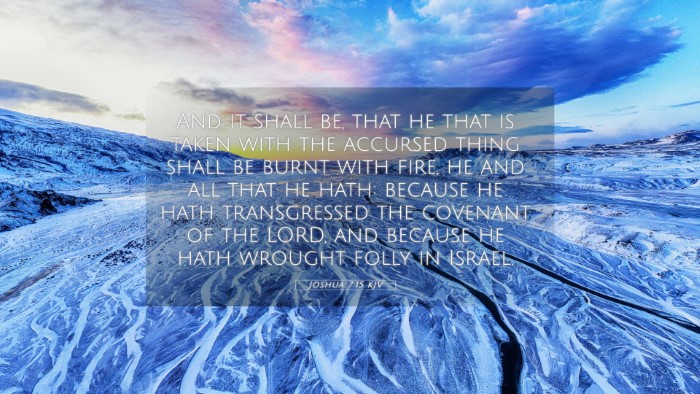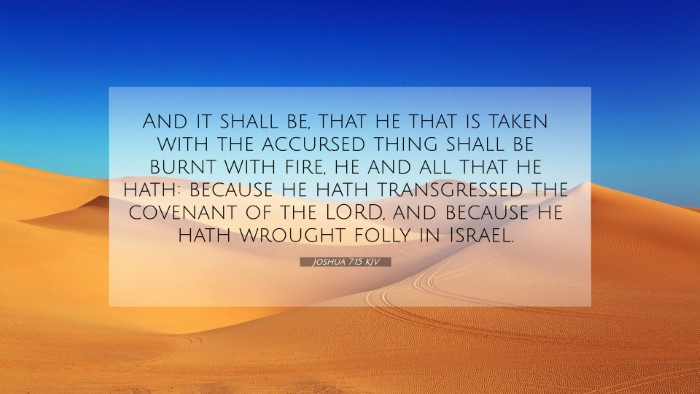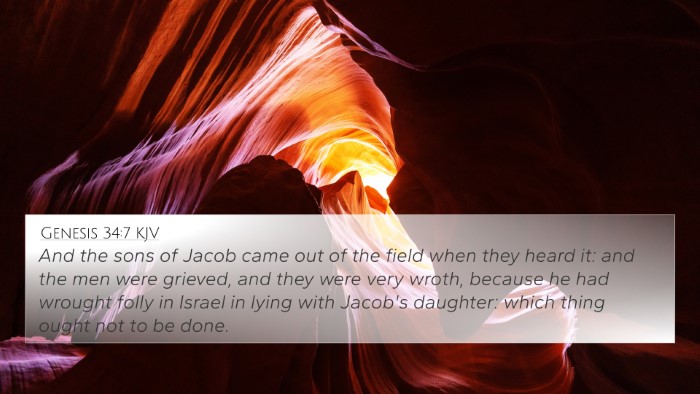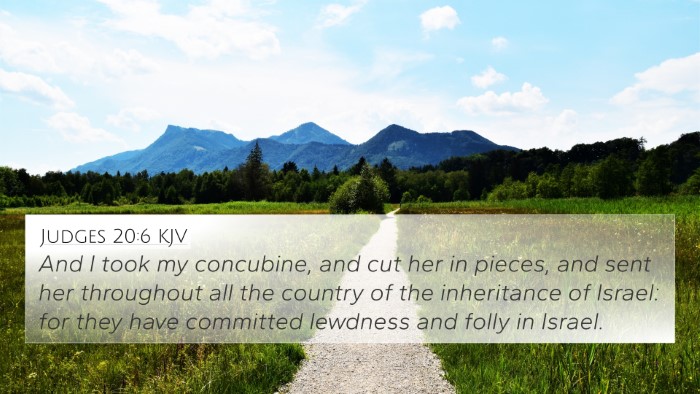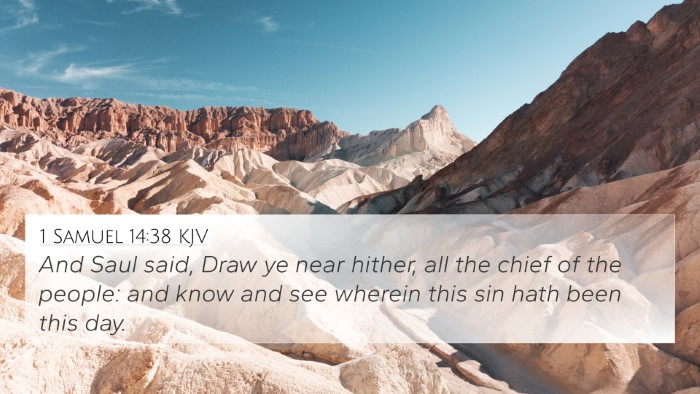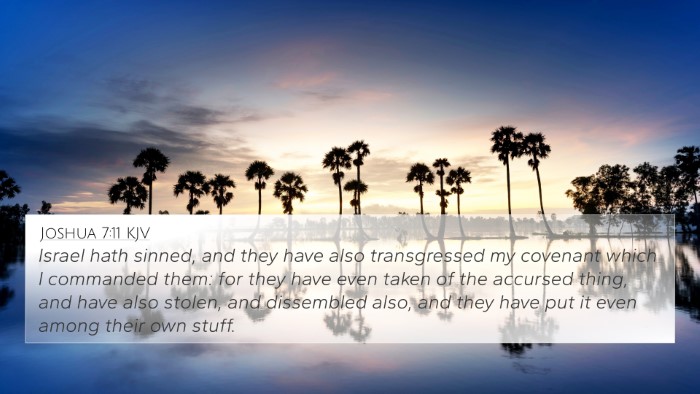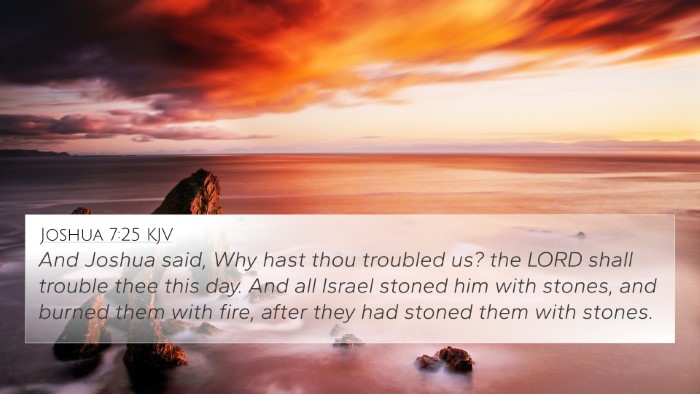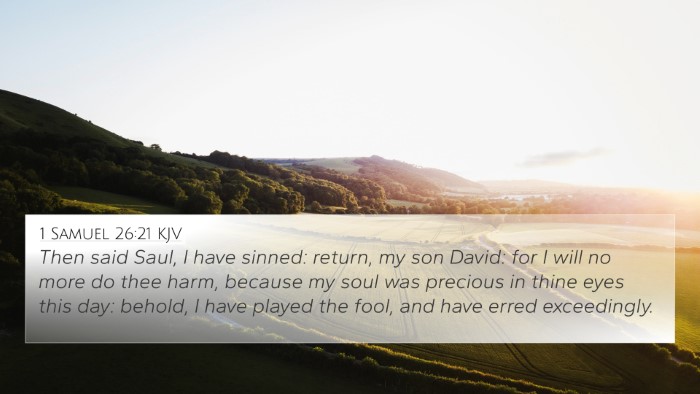Old Testament
Genesis Exodus Leviticus Numbers Deuteronomy Joshua Judges Ruth 1 Samuel 2 Samuel 1 Kings 2 Kings 1 Chronicles 2 Chronicles Ezra Nehemiah Esther Job Psalms Proverbs Ecclesiastes Song of Solomon Isaiah Jeremiah Lamentations Ezekiel Daniel Hosea Joel Amos Obadiah Jonah Micah Nahum Habakkuk Zephaniah Haggai Zechariah MalachiVerse
Joshua 7:1 Joshua 7:2 Joshua 7:3 Joshua 7:4 Joshua 7:5 Joshua 7:6 Joshua 7:7 Joshua 7:8 Joshua 7:9 Joshua 7:10 Joshua 7:11 Joshua 7:12 Joshua 7:13 Joshua 7:14 Joshua 7:15 Joshua 7:16 Joshua 7:17 Joshua 7:18 Joshua 7:19 Joshua 7:20 Joshua 7:21 Joshua 7:22 Joshua 7:23 Joshua 7:24 Joshua 7:25 Joshua 7:26